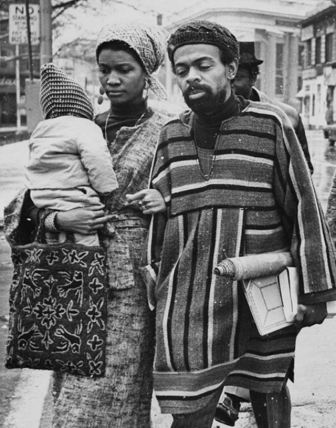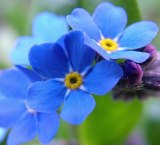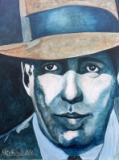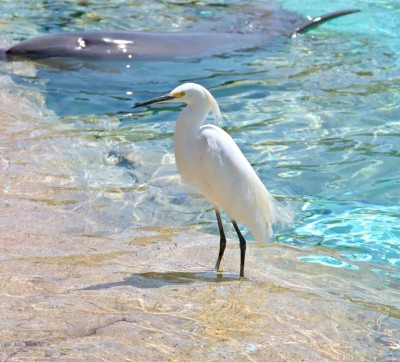Harlem Renaissance
In the early 1920's there was a movement called the "Negro" or "Harlem Renaissance". This resurgence of literature, knowledge, and the arts coming out of New York was powerful.

The African American author Imamu Amiri Baraka (born 1934 as Everett LeRoi Jones) became influential during the 1960s as a spokesperson for radical black literature and theater. An often controversial figure, he is the author of numerous books of poetry and has taught at a number of universities, including the State University of New York at Buffalo and the State University of New York at Stony Brook. Baraka's writings have been his weapon against racism and later to advocate scientific socialism. Having been converted to the Kewaida sect of the Muslim faith, he assumed the name Imamu Amiri Baraka.
Everett LeRoi Jones was born in Newark, New Jersey, where his father worked as a postman and lift operator. He studied at Rutgers, Columbia, and Howard Universities, leaving without a degree, and at the New School for Social Research. His major fields of study were philosophy and religion. In 1967 he adopted the African name Imamu Amear Baraka, which he later changed to Amiri Baraka.
In 1954 Everett LeRoi Jones joined the US Air Force, reaching the rank of sergeant. After an anonymous letter to his commanding officer accusing him of being a communist led to the discovery of Soviet writings, Jones was put on gardening duty and given a dishonorable discharge for violation of his oath of duty. The same year, Everett LeRoi Jones moved to Greenwich Village working initially in a warehouse for music records. His interest in jazz began in this period. Everett LeRoi Jones came into contact with the Beat Poets, something that would later have a powerful influence on his early poetry. In 1958, Jones founded Totem Press, which published such Beat icons as Jack Kerouac and Allen Ginsberg. Later that year he married a white woman, Hettie Cohen (who later changed her name to Hettie Jones) and together they founded the literary magazine Yugen, which ran for 8 issues until 1962. Jones also edited the magazine the Floating Bear during his period with the Beat writers.
Jones's political commitment began when he visited Cuba in 1960. After the assassination of Malcolm X, Baraka broke free from the Beat Poets. He left his wife and their two children and moved to Harlem, considering himself at that time a black cultural nationalist. He broke away from the Beat movement because he felt it did not reflect his political ideas.
The Beat poets did not embrace capitalism, but they were not radical enough regarding their critique of capitalism. As Baraka became more expressive of his feelings toward the progress of the Civil Rights movement and capitalism, his poetry became more controversial. His poem “Black Art” expressed his need to commit the violence required to “establish a Black World.” Rather than use poetry as an escapist mechanism, Baraka used poetry as a weapon of action. His poetry committed violence against those he felt were responsible for the aspects of society he felt were unjust. Baraka used placement of real objects in his poetry as a way to make his African American readers identify with his works. By providing something familiar in his works, he hoped to inspire them to fight and revolt against society.
Converted to the Kewaida sect of the Muslim faith, he took the name Imamu Amiri Baraka and moved to Newark, New Jersey. "Imamu" is the Swahili word for spiritual leader; "Amiri Baraka" is the Arabic name Jones adopted. In Newark he directed Spirit House, a religious, cultural, and educational black community. In 1966, Baraka married his second wife, Sylvia Robinson, who later adopted the name Amina Baraka. He lived with his her, their son, and his wife's three daughters by a previous marriage.
In the late 1960s and early 1970s, Baraka courted controversy by penning some strongly anti-Jewish poems and articles, similar to the stance at that time of the Nation of Islam. During the 1967 racial rebellions in Newark, Baraka was severely beaten and then arrested and charged with carrying a concealed weapon. The judge fined him $25,000 and read one of Baraka's poems, which he regarded as obscene, as justification for the exorbitant fine. National indignation was aroused by this injustice, and the fine was paid by the contributions of Baraka's supporters. He later appealed the case and won.
The 1970 election of the African American Kenneth Gibson as mayor of Newark was due partly to Baraka's leadership of a fervent voter registration campaign among African Americans of the city. Around 1974, Baraka distanced himself from Black nationalism and became a Marxist and a supporter of anti-imperialist third world liberation movements. In 1979 he became a lecturer at SUNY-Stony Brook for the Africana Studies Department, and was greatly admired by his students. The same year, after altercations with his wife, he was sentenced to a short period of compulsory community service. Around this time he began writing his autobiography. In 1980 he denounced his former anti-semitic utterances, declaring himself an anti-zionist.
In 1987, together with Maya Angelou and Toni Morrison, he was a speaker at the commemoration ceremony for James Baldwin. In 1989 he won an American Book Award for his works as well as a Langston Hughes Award. In 2002, scholar Molefi Kete Asante listed Amiri Baraka on his list of 100 Greatest African Americans. He was named Poet Laureate of New Jersey by the N.J. Commission on Humanities, from 2002-2004. His last two books of poetry, Somebody Blew Up America & Other Poems and Un Poco Low Coup received tremendous critical acclaim.
Baraka lives in Newark, New Jersey with his wife and author Amina Baraka; they have five children and head up the word-music ensemble, Blue Ark: The Word Ship and co-direct Kimako’s Blues People, the “artspace” housed in their theater basement for some fifteen years.
Don't miss a single page. Find everything you need on our complete sitemap directory.
Listen or read the top speeches from African Americans. Read more
Read about the great African Americans who fought in wars. Read more
African Americans invented many of the things we use today. Read more
Thin jazz, think art, think of great actors and find them here. Read more
Follow the history of Black Americans from slave ships to the presidency. Read more
Olympic winners, MVPS of every sport, and people who broke the color barrier. Read more
These men and women risked and sometimes lost their life to fight for the cause. Read more
Meet the people who worked to change the system from the inside. Read more

Visit my RedBubble page and use Michael Arnold Art to create greeting cards, T-shirts, mugs, and more.

The variety and impressive numbers of mammals, birds and marine wildlife in Alaska draw visitors from all over the world. For some travelers, Alaska is wilderness, at least compared to what they may know from back home. The pristine wilderness of Alaska is, perhaps, the last vestige of thriving populations of North American wildlife. Where else can you see polar bears, bald eagles, blue and humpbacked whales, gray wolves, grizzly bears, orcas, lynx, moose, and hundreds of other rare and endangered species in their original and undisturbed natural habitats?

Enjoy our website filled with original signed acrylic paintings by award winning Artist Michael Arnold. Located in Citrus County Florida, Michael Arnold is a the editor at the Citrus County Chronicle. When he's not busy being an editor, he is an avid artist who enjoys painting in a variety of styles. We hope you take the time to click on each image to see a larger view and to learn what the artist, Michael Arnold has to say about his paintings.

As dog owners and people who care deeply for animals and wildlife, we wanted our Dog Encyclopedia to be a website that could empower pet owners to create the most positive, loving environment for their dogs. Dog Encyclopedia realizes that owning a dog is like adding a new member to your family.

Floridian Nature has everything your are looking for in Florida nature. The wildlife of Florida is rich and varied, yet most of us are familiar with only a dozen or so species: the "well known endangered species such as manatees and panthers; those, like raccoons and squirrels, that have adapted to urban environments; the frightening alligators and black bears; and those like the armadillo who can't seem to cross the road. Yet they are just a few of the many animal species found in Florida.
